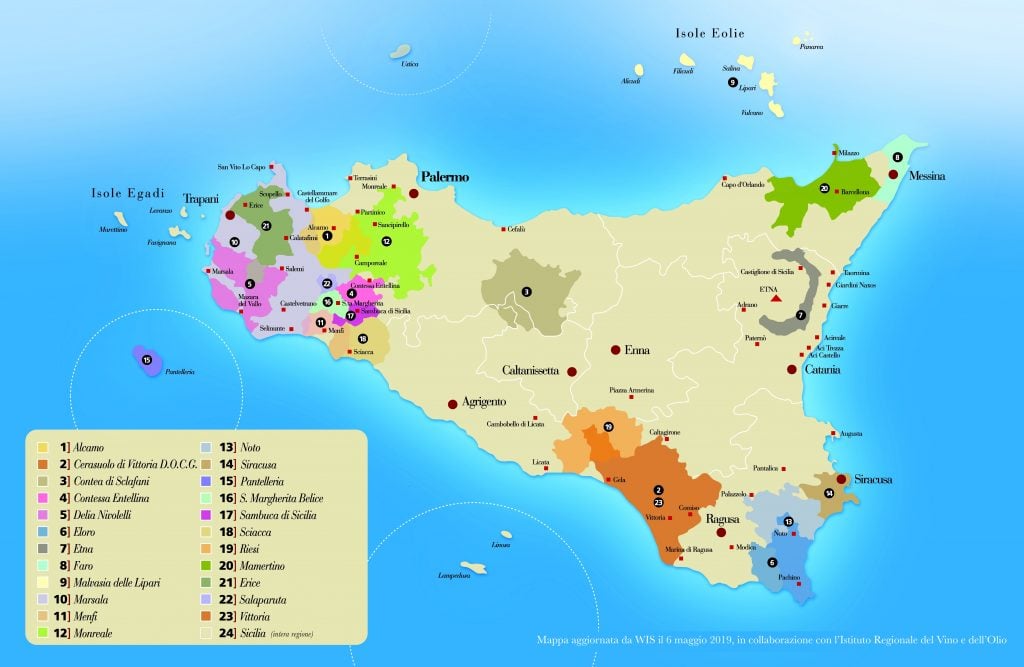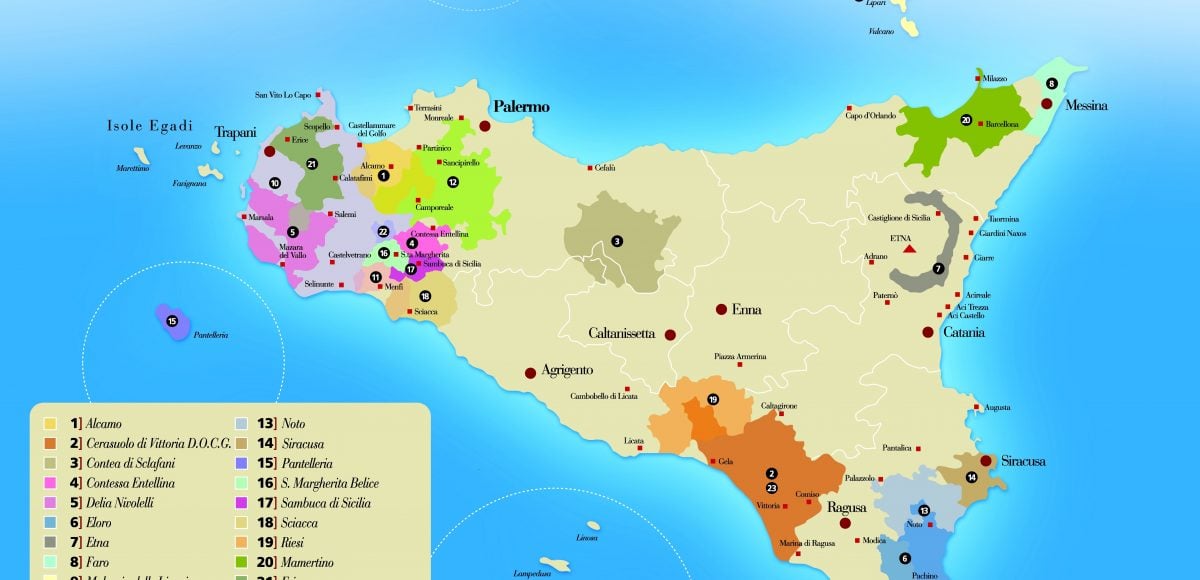Sicily is Italy’s southern most region, and the largest island in the Mediterranean Sea. For more than 2500 years Sicily (800 b.C.) has been a significant center of Mediterranean viniculture, although the reputation and style of its wines has changed significantly over that time. The island was once most famous for sweet wines (Muscat of Pantelleria and Malvasia delle Lipari), and later fortified Marsala. Today many of its best-known wines are dry table wines. At its widest point Sicily measures 280 kilometers (175 miles) east to west, and about one third that distance north to south. Its roughly triangular shape led the island to be dubbed Trinacria(the triangle) during the Middle Ages, and is reflected in the triskelion (a motif with three protrusions) at the center of the regional flag. Blessed with consistently bright sunshine and reliably moderate rainfall, Sicily’s classic Mediterranean climate is ideally suited to the production of wine grapes. The warm, dry climate means that mildews and rots are kept to a minimum, particularly in well-ventilated areas that benefit from coastal breezes. This low disease pressure means that chemical sprays are hardly needed, so much Sicilian wine is produced from organic grapes.
Sicily has 24 D.O., Denominazioni di Origine: 23 DOC, Denominazioni di Origine Controllata (DOC) and one DOCG, Denominazione di Origine Controllata e Garantita. Sicilia DOC is a broad, island-wide appellation. It launched in 2011 by a large consortium of wine producers who promoted the Sicilia IGT to a DOC.
DOC e DOCG
- Alcamo
- Cerasuolo di Vittoria (DOCG)
- Contea di Sclafani
- Contessa Entellina
- Delia Nivolelli
- Eloro
- Etna
- Faro
- Malvasia delle Lipari
- Marsala
- Menfi
- Monreale
- Noto
- Siracusa
- Pantelleria
- Santa Margherita di Belice
- Sambuca di Sicilia
- Sciacca
- Riesi
- Mamertino
- Erice
- Salaparuta
- Vittoria
- Sicilia (whole island)
IGT/IGP
- Avola
- Camarro
- Fontanarossa di Cerda
- Salemi
- Salina
- Terre Siciliane
- Valle del Belice
Source: www.politicheagricole.it

Vini: mappa delle DOC e DOCG di Sicilia. Aggiornamento: 6 maggio 2019 in occasione di Sicilia en Primeur 2019 (Siracusa)




